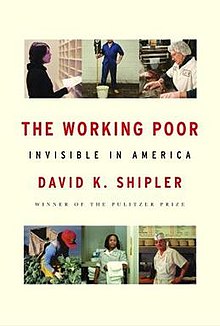Ocean Policy: Time to Act
Every issue explores cutting-edge developments in technology, medicine, education, climate change, and much more. Articles provide in-depth analyses of science and technology’s impact on public policy, the economy, and society—bringing today’s best minds to bear on tomorrow’s most critical topics.
Editor's Journal
Just Say Yes to Drug Trial Information
Several different research-access stories were in the news in September. The National Institutes of Health (NIH) issued a proposed rule that would require that all scholarly papers based on NIH-funded research be… Read More
From the Hill
From the Hill – Fall 2004
Nondefense R&D budgets face major squeeze As Congress resumed work in September, it was increasingly clear that it would once again fail to complete all of its budget work by the October… Read More
Perspectives
Improving Health in Developing Countries
International initiatives to combat diseases have proliferated, in some cases dramatically, during the past decade. For example, world spending on HIV/AIDS has increased from $300 million in 1996 to about $5 billion… Read MoreForget Politicizing Science. Let’s Democratize Science!
Since the publication last year by Rep. Henry Waxman (D-Ca.) of a report alleging that the Bush administration has been inappropriately manipulating scientific reports and advisory committees, science policy has become an… Read MorePrecollege Science Teachers Need Better Training
Now and in the decades to come, science literacy may well be the defining factor for our success as individuals and as a nation. Indeed, U.S. global competitiveness and its national security… Read More
Features
Archives – Fall 2004
Photo: Ernst Mayr Library of the Museum of Comparative Zoology, Harvard University Henry Bryant Bigelow It was at the urging of Harvard University zoologist Henry Bryant Bigelow, shown here piloting the yacht… Read MoreMeeting the New Challenge to U.S. Economic Competitiveness
The U.S. economy, seemingly a world-dominant Goliath in the mid- and late-1990s, now faces major structural challenges from a new cast of Davids. The nation confronts a host of new economic challengers… Read MoreScience, Politics, and U.S. Democracy
Political manipulation of scientific evidence in the interest of ideological convictions has been a commonplace of the U.S. democracy since the end of World War II. In 1952, the incoming secretary of… Read MoreCartoon – Fall 2004
“It’s a marine sanctuary, not a gated community. And I’m moving into it.” Photo: Ernst Mayr Library of the Museum of Comparative Zoology, Harvard University… Read MoreProtecting Public Anonymity
People in the United States have long enjoyed an expectation of anonymity when traveling or performing everyday activities in most public places. For example, they expect not to be recognized, or to… Read MoreBuilding a Transatlantic Biotech Partnership
The United States and Europe continue to turn up the heat in their long-simmering biotech stew. In May 2003, the Bush administration initiated a challenge within the World Trade Organization (WTO) to… Read MoreSaving the Oceans
The oceans have been suffering from a variety of escalating insults for decades: excessive and destructive fishing; loss of wetlands and other valuable habitat; pollution from industries, farms, and households; invasion of… Read MoreSink or Swim Time for U.S. Fishery Policy
Marine species residing in U.S. territorial waters and the men and women who make their livelihood from them are at a critical juncture. Many species are overexploited and face additional threats from… Read MoreFall 2004 Update
U.S. commitment to human spaceflight beyond Earth orbit still in doubt In “A Sustainable Rationale for Human Spaceflight” (Issues, Winter 2004), I forecast that President George W. Bush would… Read MoreSmall Combat Ships and the Future of the Navy
In November 2001, the U.S. Navy announced a new family of 21st century surface warships that includes a small, focused-mission combatant called the Littoral Combat Ship, or LCS. The LCS would be… Read More
Book Reviews

Where’s Oppie?
Imagine spending half a century to write a short book. That’s what Jeremy Bernstein has done, and the wait was worth it. A physics professor and New Yorker writer, Bernstein has watched… Read More
Ain’t it hard?
The kind of poverty that’s hardest to shake is overdetermined. Dropping out of high school leads to the lowest-paid and least secure jobs, which can mean frequent stints of unemployment, which can… Read More
